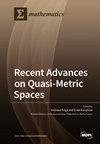Evolutionary Game and Simulation Analysis of New-Energy Vehicle Promotion in China Based on Reward and Punishment Mechanisms
IF 2.2
3区 数学
Q1 MATHEMATICS
引用次数: 0
Abstract
In China, new-energy vehicles are viewed as the ultimate goal for the automobile industry, given the current focus on the “dual-carbon” target. Therefore, it is important to promote the sustainable development of this new-energy market and ensure a smooth transition from fuel-driven vehicles to new-energy vehicles. This study constructs a tripartite evolutionary game model involving vehicle enterprises, consumers, and the government. It improves the tripartite evolutionary game through the mechanisms of dynamic and static rewards and punishments, respectively, using real-world data. The results show the following. (1) A fluctuation is present in the sales of new-energy vehicles by enterprises and the active promotional behavior of the government. This fluctuation leads to instability, and the behavior is difficult to accurately predict, which is not conducive new-energy vehicles’ promotion and sales. (2) A static reward and punishment mechanism can change the fluctuation threshold or peak value. Nevertheless, the stability of the system’s strategy is not the main reason that the government has been actively promoting it for a long time. However, enterprises are still wavering between new-energy and fuel vehicles. (3) The linear dynamic reward and punishment mechanism also has its defects. Although they are considered the stability control strategy of the system, they are still not conducive to stability. (4) The nonlinear dynamic reward and punishment mechanism can help the system to achieve the ideal stabilization strategy.基于奖惩机制的中国新能源汽车推广的演化博弈与仿真分析
在中国,新能源汽车被视为汽车行业的终极目标,因为当前的重点是 "双碳 "目标。因此,促进新能源汽车市场的可持续发展,确保燃油汽车向新能源汽车的平稳过渡至关重要。本研究构建了一个涉及整车企业、消费者和政府的三方演化博弈模型。利用实际数据,分别通过动态和静态奖惩机制对三方进化博弈进行了改进。结果表明(1) 企业的新能源汽车销售和政府的积极推广行为存在波动。这种波动导致了行为的不稳定性,行为难以准确预测,不利于新能源汽车的推广和销售。(2)静态奖惩机制可以改变波动阈值或峰值。尽管如此,制度策略的稳定性并不是政府长期以来积极推广的主要原因。但企业仍在新能源汽车和燃油汽车之间摇摆不定。(3)线性动态奖惩机制也有缺陷。虽然它们被认为是系统的稳定控制策略,但仍然不利于系统的稳定。(4) 非线性动态奖惩机制可以帮助系统实现理想的稳定策略。
本文章由计算机程序翻译,如有差异,请以英文原文为准。
求助全文
约1分钟内获得全文
求助全文
来源期刊

Mathematics
Mathematics-General Mathematics
CiteScore
4.00
自引率
16.70%
发文量
4032
审稿时长
21.9 days
期刊介绍:
Mathematics (ISSN 2227-7390) is an international, open access journal which provides an advanced forum for studies related to mathematical sciences. It devotes exclusively to the publication of high-quality reviews, regular research papers and short communications in all areas of pure and applied mathematics. Mathematics also publishes timely and thorough survey articles on current trends, new theoretical techniques, novel ideas and new mathematical tools in different branches of mathematics.
 求助内容:
求助内容: 应助结果提醒方式:
应助结果提醒方式:


